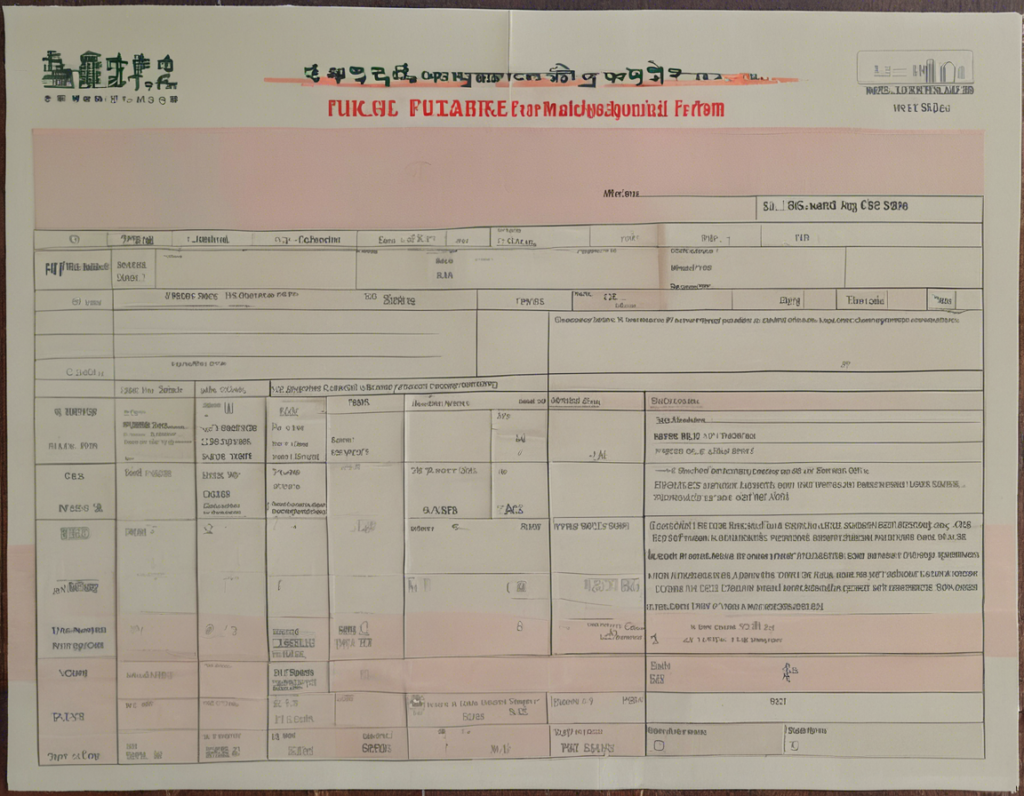Introduction
Form 15G is a crucial element of the Indian income tax framework that helps individuals avoid tax deduction at source (TDS) on certain incomes. Understanding the significance and correct usage of Form 15G is essential for individuals to ensure proper tax compliance and savings. In this comprehensive guide, we will delve into the details of Form 15G, its importance, eligibility criteria, the process of submission, consequences of incorrect filing, and frequently asked questions related to this form.
What is Form 15G?
Form 15G is a self-declaration form under Section 197A of the Income Tax Act, 1961, that allows individuals, especially those below the age of 60, to declare that their income is below the taxable limit, hence exempting them from TDS on certain incomes like interest from fixed deposits, recurring deposits, dividends, etc.
Importance of Form 15G
Form 15G serves as a beneficial tool for individuals to prevent unnecessary TDS deductions on their income, especially for those with no tax liability due to low income levels. By submitting this form to the deductor, individuals can ensure that their income is not subject to TDS, preserving their liquidity and cash flow.
Eligibility Criteria for Form 15G
To be eligible to submit Form 15G, an individual must meet the following criteria:
- They should be an individual or a Hindu Undivided Family (HUF).
- Their age should be below 60 years.
- Their taxable income for the financial year should be below the basic exemption limit.
- The total interest income for the financial year should be below the basic exemption limit.
- The aggregate of the income earned should not be chargeable to tax.
Process of Submission
The process of submitting Form 15G involves the following steps:
- Obtain Form 15G: The form is available on the Income Tax Department’s official website or can be procured from banks, financial institutions, or deductors.
- Fill in the Details: Provide accurate information including name, address, PAN, previous year’s assessment year, etc.
- Attach necessary documents: Attach a copy of PAN to the form.
- Submit to Deductor: Submit the form to the deductor such as banks, post office, or any other institution responsible for deducting TDS.
- Retain Acknowledgment: Ensure to retain a copy of the form with the deductor’s acknowledgment.
Consequences of Incorrect Filing
Incorrect filing of Form 15G can lead to penalties and legal implications. If the income declared is found to be false or exceeds the taxable limit, the individual may face repercussions such as:
- Penal Interest: A penal interest may be levied on the tax amount that should have been deducted.
- Prosecution: In severe cases of willful non-disclosure or falsification of information, prosecution under the Income Tax Act may be initiated.
- Rejection by Deductor: If the form is incorrectly filled or does not meet the eligibility criteria, the deductor has the right to reject it and proceed with TDS deduction.
FAQs (Frequently Asked Questions)
- Who can submit Form 15G?
-
Individuals and Hindu Undivided Families (HUFs) below 60 years of age meeting the eligibility criteria can submit Form 15G.
-
Is Form 15G applicable for senior citizens?
-
No, senior citizens aged 60 years or above can submit Form 15H instead of Form 15G.
-
Can Form 15G be submitted online?
-
As of now, Form 15G cannot be submitted online. It has to be physically submitted to the deductor.
-
How long is Form 15G valid for?
-
Form 15G is valid for one financial year. It needs to be submitted each year if the individual meets the eligibility criteria.
-
Can Form 15G be submitted for all sources of income?
-
Form 15G can be submitted for incomes like interest from fixed deposits, recurring deposits, dividends, etc., subject to meeting the eligibility criteria for each source.
-
What happens if Form 15G is wrongly submitted?
-
Incorrect submission of Form 15G may lead to penal interest, legal consequences, and possible rejection by the deductor.
-
Is Form 15G mandatory for individuals below the taxable limit?
-
While not mandatory, submitting Form 15G is advisable for individuals to avoid TDS deductions on their income.
-
Can NRIs submit Form 15G?
-
Non-Resident Indians (NRIs) are not eligible to submit Form 15G. Different rules apply to their tax liabilities.
-
Can Form 15G be submitted multiple times in a year?
-
Yes, if an individual has multiple sources of income where TDS deduction is applicable and the criteria are met, Form 15G can be submitted for each source.
-
What is the purpose of mentioning PAN in Form 15G?
- PAN is a mandatory requirement in Form 15G to ensure proper identification and verification of the individual by the Income Tax Department.
Conclusion
Form 15G plays a pivotal role in the taxation process, offering individuals a means to prevent unnecessary TDS deductions on their income. By understanding the significance, eligibility criteria, submission process, and potential consequences of incorrect filing associated with Form 15G, individuals can ensure compliance with tax regulations and optimize their financial planning. It is crucial to adhere to the guidelines provided by the Income Tax Department and consult with tax professionals if needed to navigate the complexities of Form 15G effectively.
